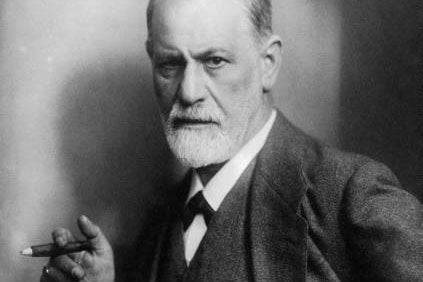
Picking up where Freud left off
Published: January 27, 2014
It's been a big century for psychoanalysis: attitudes toward mental illness have shifted from shame and controversy to familiarity and even acceptance in western culture over a relatively short time.
Leading international study and scholarship in the field is the International Psychoanalytic Association (IPA), which Sigmund Freud himself founded in 1910 and which now includes more than 12,000 members.
Professor Emeritus Charles Hanly recently concluded his second term of office (2009-11, 2011-13) as president of the IPA. Hanly, who taught philosophy at U of T until 1995, has a full-time psychoanalytic practice and is a training and supervising analyst in the Canadian Institute of Psychoanalysis.
He reflected on his time at the helm of the IPA and what it meant to lead an organization in a high-profile and ever-changing field for U of T News.
100 years on, Freud is still at the centre of psychoanalysis for the IPA
The fundamental theories and technique of psychoanalysis remain Freudian but now there are also theories such as self-psychology and relational psychology that offer alternative hypotheses and techniques. Further, not all Freudians accept all of Freud's theories precisely as he formulated them.
That said, these alternative approaches have not replaced Freud's basic theories in the way in which evolution has replaced creationism in biology or in the different way in which relativity theory and quantum mechanics have replaced Newtonian mechanics. The many people who still think of Freud as the founder of psychoanalysis are in agreement with the large majority of psychoanalysts who are members of the International Psychoanalytic Association.
Fostering a new enthusiasm for Freud in Asia
One of my surprises during my time as president of the IPA was the great interest in Freud and in psychoanalysis in Asia and I placed a high priority on developing psychoanalysis in China. During my tenure in office the first Chinese student graduated from our training program in Beijing and became a member of the IPA at the Mexico Congress. It is a small beginning but many more gifted young people will follow Lin Tao in the years to come. The leading figures in mental health services in China who are working hard to develop psychotherapy services in their cities consider psychoanalysis to be the foundation of the psychotherapies. We now have training programs in Beijing and Shanghai.
This experience deepened my confidence that, despite real cultural differences, there is a universal human nature along with shared human conditions for survival, maturation, health and neurosis.
Psychoanalysis continues to develop and extend its reach
I dedicated my presidency to advancing psychoanalysis (Freud’s mission for the IPA) by strengthening clinical and theoretical work to test and integrate the theory that enables our patients to be understood. I also wanted to improve the way we share with the public realistic ideas about psychoanalysis and what it can contribute to knowledge and to individual well-being. Accordingly, I initiated programs on clinical observation and testing of interpretations and theories, on theoretical integration and on outreach to the communities we serve. Many talented and dedicated colleagues made these programs a success over the four years of my presidency. Their work will be continued and furthered. This work, apart from the administrative issues that also occupied me, has been deeply satisfying.
Building a practice in psychoanalysis
Building a practice in psychoanalysis in most countries remains much the same as it was during the last century. Educated people who suffer from neuroses seek out psychotherapy and psychoanalysis from psychoanalysts.
In European countries with national health schemes the services of non-physician analysts as well as physician analysts have their services covered whereas, in Ontario, only the services of physician analysts are covered by OHIP. I was successful in overcoming this competitive disadvantage as the only non-psychiatrist psychoanalyst in Ontario when I started my practice on a part-time basis in the early morning and evening while teaching at the university. (Times have greatly changed since: although OHIP has not changed its coverage, there are now many more non-medical IPA accredited psychoanalysts practising in Ontario.)
I have been in full-time practice since my retirement from the university and part-time during my six-year commitment to the IPA. This clinical experience greatly enriched my teaching of courses on psychoanalytic theory and applied psychoanalysis in the Department of Philosophy and, of course, guided me during my tenure in office.



